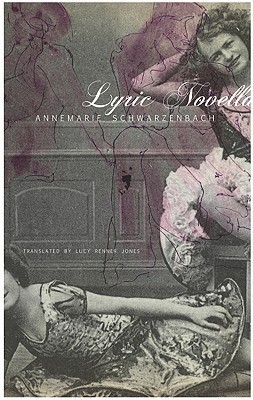Paperback, 140 pages
German language
Published Jan. 3, 2011 by Seagull Books.

Paperback, 140 pages
German language
Published Jan. 3, 2011 by Seagull Books.
Annemarie Schwarzenbach—journalist, novelist, antifascist, archaeologist, and traveler—has become a European cult figure for bohemian free spirits since the rediscovery of her works in the late 1980s. Lyric Novella is her story of a young man’s obsession with a Berlin variété actress. Despite having his future career mapped out for him in the diplomatic service, the young man begins to question all his family values under Sibylle’s spell. His family, future, and social standing become irrelevant when set against his overriding compulsion to pick her up every night from the theater so they can go for a drive. Schwarzenbach’s clear, psychologically acute prose makes this novella an evocative narrative, with many intriguing parallels to her own life. In fact, she admitted after publication that her hero was in fact a young woman, not a man, leaving little doubt that Lyric Novella is a literary tale of lesbian love during socially and …
Annemarie Schwarzenbach—journalist, novelist, antifascist, archaeologist, and traveler—has become a European cult figure for bohemian free spirits since the rediscovery of her works in the late 1980s. Lyric Novella is her story of a young man’s obsession with a Berlin variété actress. Despite having his future career mapped out for him in the diplomatic service, the young man begins to question all his family values under Sibylle’s spell. His family, future, and social standing become irrelevant when set against his overriding compulsion to pick her up every night from the theater so they can go for a drive. Schwarzenbach’s clear, psychologically acute prose makes this novella an evocative narrative, with many intriguing parallels to her own life. In fact, she admitted after publication that her hero was in fact a young woman, not a man, leaving little doubt that Lyric Novella is a literary tale of lesbian love during socially and politically turbulent times. Praise for the German Edition “The subject of Annemarie Schwarzenbach’s story is not failed love— Sibylle’s apparent emotional coldness—but the failure of love—the protagonist’s helpless inability, in the crucial moment, to accept his human responsibility toward the beloved.”— Neue Zürcher Zeitung “The work bears the face of its time, but it is so gentle, silent and veiled that one can barely exclude the person behind the mask. A mask is in fact this face, because the hero is a heroine who does not want to be seen.”—Frankfurter Allgemeine Zeitung